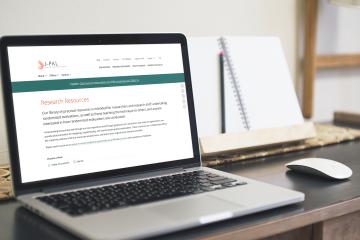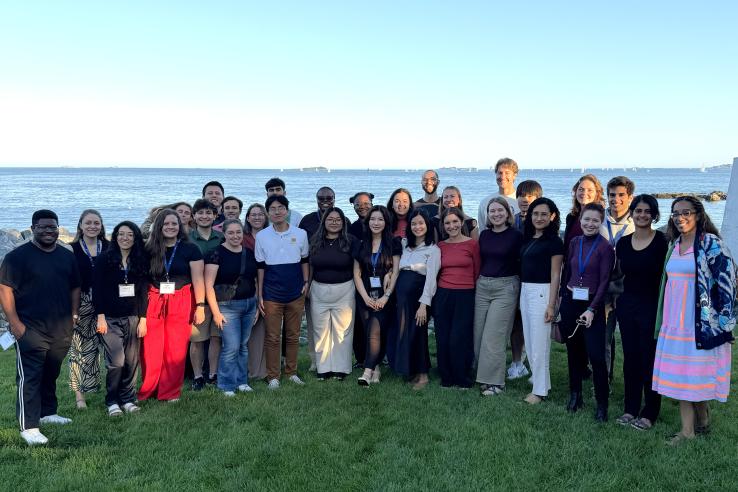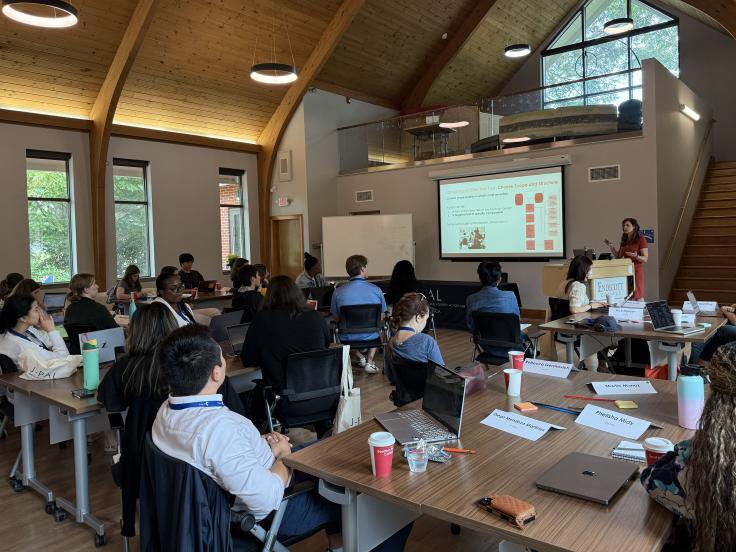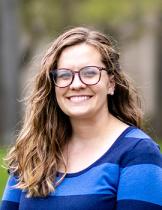
Supporting early career research staff through North America’s Research Staff Training

J-PAL North America, in collaboration with J-PAL Global and Innovations for Poverty Action (IPA), has hosted an annual Research Staff Training (RST) since 2018 to help newly hired Research Associates (RAs) succeed in their current roles and provide them with tools and resources to support them throughout their research careers. After five years of virtual delivery, J-PAL hosted RST in-person in August 2025, welcoming 29 participants to a three-day course on randomized evaluations on the campus of Endicott College in Beverly, MA. In this post, RST participants from our most recent cohort reflect on their experiences and highlight what they valued most about the training.
Comprehensive research pipeline
“Anyone in their first year as an RA or a PhD student who wants fast, practical instructions in the full research pipeline should attend RST. It’s the right mix of ‘how to think’ and ‘how to do.’ I promise that it’ll help you hit the ground running.”
- Gabriel Solis (MIT Blueprint Lab)
RST is designed to take participants through the entire research process: from forming research questions, to randomization and power calculations, and ultimately communicating research findings effectively to different audiences. Each session emphasizes research best practices, drawing on sources such as J-PAL’s research resources. Content is delivered through a blend of lectures, hands-on exercises, case studies, and project-based learning.
“Even with prior experience, I was amazed by how much ground we covered in such a short amount of time. There was always another layer to uncover, such as topics I hadn’t thought deeply about or best practices I hadn’t formalized before. I left feeling like I had both a stronger foundation and a clearer picture of where I want to keep improving.”
- Piper Oren
In addition to the sessions led by J-PAL staff, RST features presentations from J-PAL associated researchers who share how they apply key topics in their own research projects. At this year’s training, J-PAL affiliate Alicia Sasser Modestino (Northeastern University) discussed the value of piloting interventions—an incredibly valuable, but under-documented, step allowing teams to refine design and implementation before scaling. Christopher Robert (Higher Bar AI), a long-time J-PAL collaborator, shared insights on incorporating AI large language models (LLMs) into research workflows. As AI tools rapidly evolve, Dr. Robert highlighted practical and ethical ways for researchers to incorporate AI while avoiding common pitfalls.

Creating a community of early career research staff
“The opportunity to meet and collaborate with many other research professionals was valuable, and I appreciated the care that was taken to ensure we all got a chance to sit with as many participants as possible. As a result, we all gained many new connections to people and labs, which is always important, especially for people early in their careers.”
-Sarah Mogan (Behavioral Insights and Parenting Lab, University of Chicago)
RST fosters a sense of community among the participants, expanding their professional and academic networks across research labs worldwide. Attendees bring diverse perspectives and experiences, contributing to a collaborative environment where participants can learn from each other. The collaborative exercises provided throughout the sessions draw on these strengths and perspectives. For instance, during the git and GitHub session, students were paired by contrasting ability levels to encourage peer learning. Outside of the sessions, social activities and informal gatherings throughout the week helped to strengthen these relationships.
Short- and long-term benefits
In addition to providing an engaging cohort-based training for staff supporting randomized evaluations, RST prepares participants to become the next generation of social science researchers. Content covered in RST can be applied immediately to the work they are involved in, in the future projects at their current lab, or later in their career when they are potentially designing and running their own randomized evaluations.
“RST gave me tools I'm using every day: calculating power for our studies, implementing randomization with proper documentation, and building reproducible codebases that other RAs can actually follow and run. The inclusive language and ethics training has shifted how I think about survey design and measurement. I'm more deliberate about how we frame questions and communicate with partners. Looking ahead to PhD programs, the rigor around experimental design, commitment to transparent coding, and ability to present research inclusively will strengthen my applications and, more importantly, make me a better researcher in the long run.”
-Gabriel Solis (MIT Blueprint Lab)
“I was not very familiar with randomized evaluations prior to attending this training. Learning about a new area of economic research has helped me look at some of my work with a new perspective and I feel like cross-training in different areas can break the silo effect that can sometimes occur within research sectors.”
-Nick Croteau (Federal Reserve Bank of Atlanta)
Whether participants are actively supporting randomized evaluations or looking to expand their methodological toolkit, RST offers an engaging, cohort-based training designed for research assistants, pre-docs, and new research managers.
“I would recommend RST to anyone pursuing or returning to a career in applied research, evaluation, or policy analysis, especially those who want a solid refresher or who are looking to link research with implementation in the field.”
-Phelisha Midy (FinDev Canada)
The next iteration of RST will be held August 3-7, 2026 at Endicott College in Beverly Massachusetts. Applications are expected to open in April and close July 1. We encourage PIs applying for J-PAL funding to include a line item in their budget to enroll their RAs in this training. Limited scholarship funding is also available for research staff applying independently. Please reach out to [email protected] with any questions.

